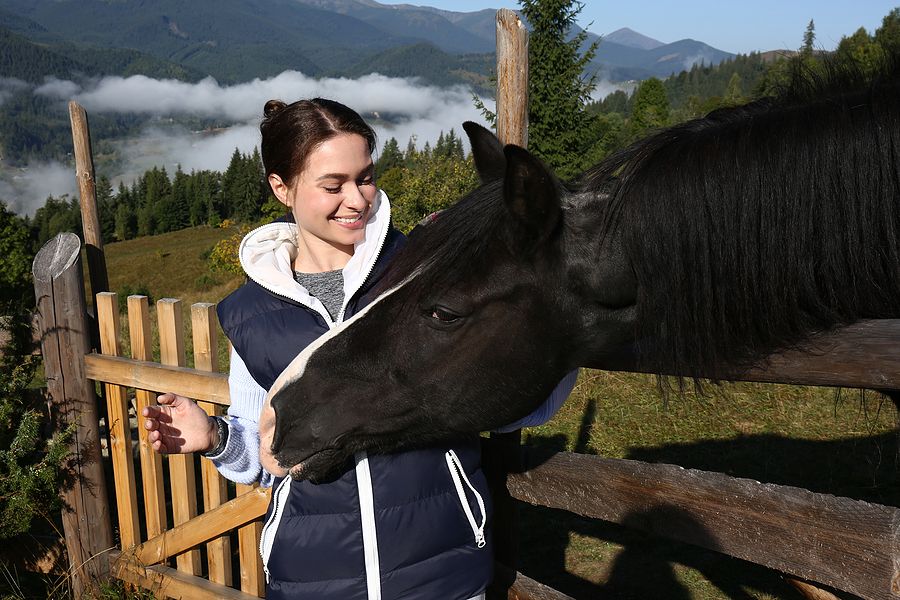No matter how we try not to think about it, none of us can avoid the effects of getting older, and your aging horse is no exception. Inevitable structural and physiological changes begin to happen with advancing years. So when should you retire your aging horse?
How Old Is Old for a Horse?
A horse is considered senior at 18 to 20 years. However, comparing horses and humans is challenging because their lifespans are quite different.
- Here’s a comparison chart at various horse ages.
How Old Is Too Old for a Horse?
Whether it’s best to slow down should not depend on age alone. Here are some questions to ask when considering moderating your aging horse’s activities or retiring him altogether.
Is performance declining? Is your once dependable reining horse suddenly late changing his leads? Is your aging trail horse beginning to lag behind?
Is he lame? Wear and tear on soft tissues and joints combined with cumulative effects of old injuries can result in chronic lameness. If your aging horse requires ongoing treatment, it might be time for an easier life.
How does he look? Does your 20-year-old equine look fat, shiny, and happy? Or is he appearing a bit sway-backed and scrawny despite his senior diet?
Does he have tooth problems? Your horse’s teeth have “reserve crowns” underneath the gum line that gradually erupt to compensate for worn-away tooth surfaces. With age, this reserve gets depleted until nothing is left but nubs. Feed can’t be chewed effectively, and proper digestion becomes difficult, causing weight loss and muscle atrophy.
- Example: Spirit is a 21-year-old Arabian with serious dental problems. Even on a good diet, you can see his ribs. A younger Spirit competed in 100-mile endurance races, but recently he can only manage 25-mile rides. Expending the energy required for endurance is not in this Arabian’s best interests. It’s Spirit’s time to enjoy a life of more leisurely low-mile trail riding.
Are there other health concerns? Depending on the issue, there may be specific activities to avoid to help your horse stay as healthy as possible.
- Example: Wyatt, a 19-year-old half-thoroughbred recently diagnosed with deteriorating kidneys, must be kept well hydrated. To avoid fluid loss through sweat, he should no longer be ridden. Also, all his food calories are needed to help with his weight issue. With a chronic disease complicating the aging process, Wyatt should be retired.
Is he happy to see you? Do you get a welcoming nicker, or does he pin back his ears and turn away? Does he still enjoy being handled, or does he resist you with a swishing tail? If your horse is grouchy and sour, he might welcome retirement.
- Example: Maisie, a 32-year-old pony used in a therapeutic riding program, is in good shape, and her Cushing’s disease is controlled. She happily nuzzles her young riders and enjoys trotting around with one of them aboard. Maisie is not too old for her job because “how old is too old” depends on more than just years.
- Note: About 30 percent of horses aged over 20 have Cushing’s disease.
Your Aging Horse Needs a Vet Exam
A vet will determine if health issues are contributing to your horse’s performance decline. However, if nothing amiss is found, it may just be that your horse is feeling his age, and it’s time to make his life easier.
- Midlands Pet Care specializes in pet cremations and provides compassionate care as you deal with the loss of your beloved horse. We also have an array of memorials to help you remember all your good riding days together.

